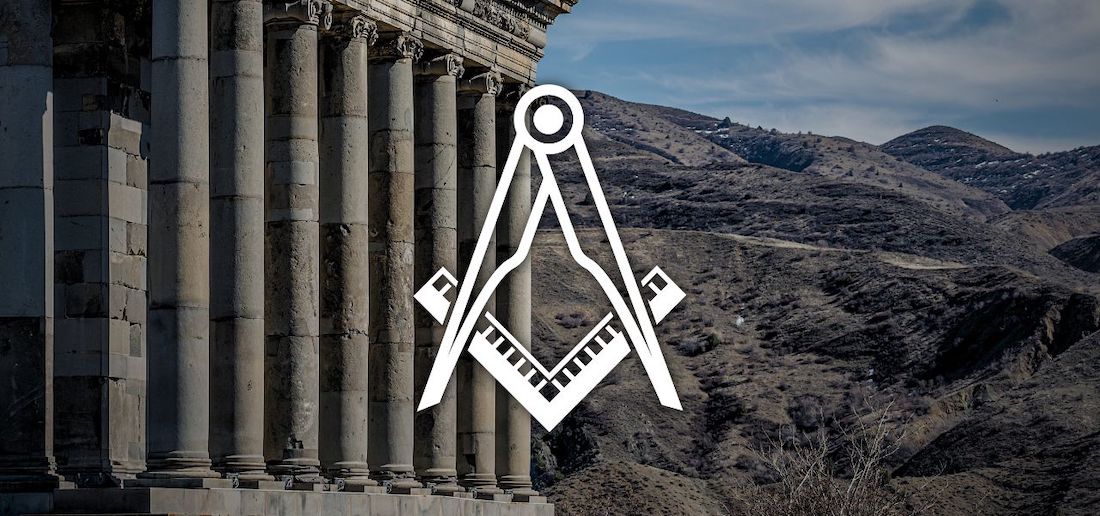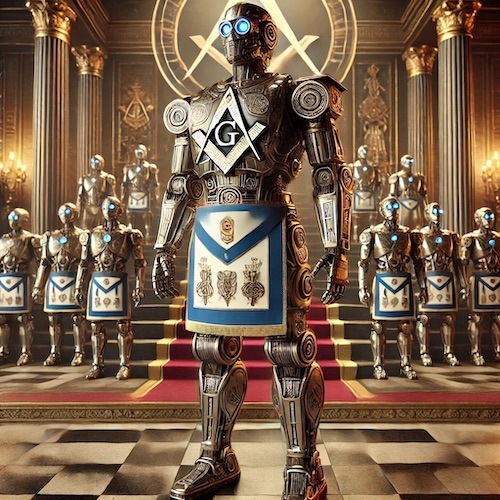Freemasonry is a subject shrouded in mystery and intrigue, often evoking images of secret rituals and enigmatic symbols.
As one of the world’s oldest fraternal organizations, its history and traditions have sparked countless debates and curiosity.
Among the many questions that arise about Freemasonry, one of the most provocative I’ve seen lately is whether it has roots in Paganism.
This article delves into the spiritual foundations of Freemasonry, exploring the symbols, rituals, and philosophies that have led some to draw connections with ancient Pagan practices.
Join us as we unravel the layers of this fascinating subject, seeking to understand the true nature of the Masonic tradition and its historical influences.
TLDR: No, Freemasonry is not Paganism, but many will agree Masonry does share some similarities with various spiritual traditions.
Other Key Takeaways:
- Freemasonry is not a religion but a fraternal organization that welcomes members of various faiths.
- While Freemasonry uses some symbols found in pagan traditions, it also draws from many other sources.
- The relationship between Freemasonry and Paganism is complex and often misunderstood.

The Origins of Freemasonry
Freemasonry, which has deep historical roots, originated from the stonemasons’ guilds of the Middle Ages.
These guilds used special signs and handshakes as a means of identifying their skills. Over time, they began to include non-masons in their ranks.
Its symbols, such as the Square and Compasses, represent moral lessons and personal growth rather than religious beliefs.
The rituals performed in Masonic lodges are designed to teach members through symbolic stories, including narratives like the building of King Solomon’s Temple.
While Freemasonry has a diverse membership and a variety of cultural influences, it is not based on paganism.
Instead, it focuses on ethical and philosophical teachings that are compatible with many different religious beliefs.
Today, there are about 6 million Freemasons worldwide, including people of various religious backgrounds.
Comparative Analysis of Paganism and Freemasonry
| Aspect | Freemasonry | Paganism |
|---|---|---|
| Belief in a Supreme Being | Yes | Varies |
| Ritual Practices | Yes | Yes |
| Esoteric Teachings | Yes | Yes |
| Historical Origin | Medieval | Ancient |
| Use of Symbolism | Yes | Yes |
| Sacred Texts | No | No |
| Hierarchical Structure | Yes | No |
| Membership Requirements | Yes | No |
| Secretive Nature | Yes | No |
| Diverse Pantheon of Deities | No | Yes |
However Paganism and Freemasonry do share some interesting connections and differences.
Let’s look at how these two belief systems compare in terms of their core ideas and practices.
Definition of Paganism
Paganism is a broad term for nature-based spiritual paths. It often involves worship of multiple gods or goddesses.
Pagans usually celebrate the cycles of nature. They may mark solstices, equinoxes, and other seasonal events.
Many Pagan traditions focus on personal spiritual growth. They encourage a direct connection with the divine.
Practices can include rituals, spellwork, and meditation. Some Pagans work with herbs, crystals, or other natural items.
There’s no single holy book or central authority in Paganism either. Different groups and individuals may have varied beliefs and customs.
Similarities and Differences
Freemasonry and Paganism both value symbolism and ritual, and they each use special tools and ceremonies in their practices.
Both systems encourage self-improvement and moral living. They teach members to be good people and help others.
A key difference is that Freemasonry isn’t a religion.
It welcomes men of various faiths. Paganism, on the other hand, is a spiritual path.
Freemasonry has a more structured organization. It uses degrees and has specific roles within lodges. Pagan groups tend to be less formal.
Some Masonic symbols and ideas may have Pagan roots. But Freemasonry itself isn’t a Pagan practice.
Both value knowledge and learning. They encourage members to seek wisdom and understanding throughout life.
Perspectives on Freemasonry
Freemasonry sparks different views from those inside and outside the organization.
You’ll find that opinions vary widely based on personal experiences and beliefs.
Members’ Views
As a Freemason, you might see the organization as a positive force in your life.
You could view it as a brotherhood focused on self-improvement.
Many members feel the rituals and teachings help them grow morally and spiritually.
You might appreciate the sense of community and shared values. The emphasis on charity work could be important to you. Some Masons find deep meaning in the symbols and traditions.
You may see Freemasonry as compatible with your religious beliefs, viewing it as a complement rather than a replacement.
Public Perception
If you’re not a Mason, your view of Freemasonry might be quite different.
You may see it as a mysterious secret society. Some people are curious about the rituals and symbols used in Masonic lodges.
You might wonder about the organization’s true purpose. Some view Freemasonry with suspicion, thinking it has hidden agendas or too much influence.
Religious concerns can shape public perception.
You may have heard debates about whether Freemasonry is compatible with certain faiths. This can lead to mixed feelings about the organization in some communities.
Frequently Asked Questions

Freemasons follow certain core values and have specific views on religion. Our beliefs and practices are often misunderstood.
What are the core beliefs and values upheld by Freemasons?
Freemasons believe in a Supreme Being, though they don’t promote any specific religion. They value personal growth, moral character, and helping others.
Freemasons focus on improving themselves and their communities. They practice charity and support various causes.
Integrity, honesty, and respect are key values for Freemasons. They aim to be good citizens and make positive changes in the world.
How does Freemasonry view and interact with different religions?
Freemasonry welcomes members from many faiths. You can be a Freemason regardless of your religion as long as you believe in a higher power.
Freemasons don’t discuss religion or politics in meetings. This helps create a peaceful environment for all members.
While some think Freemasonry is a religion, it’s not. It’s a fraternal organization that respects diverse beliefs.
Freemasons encourage members to practice their own faiths. They see their organization as complementary to religion, not a replacement for it.